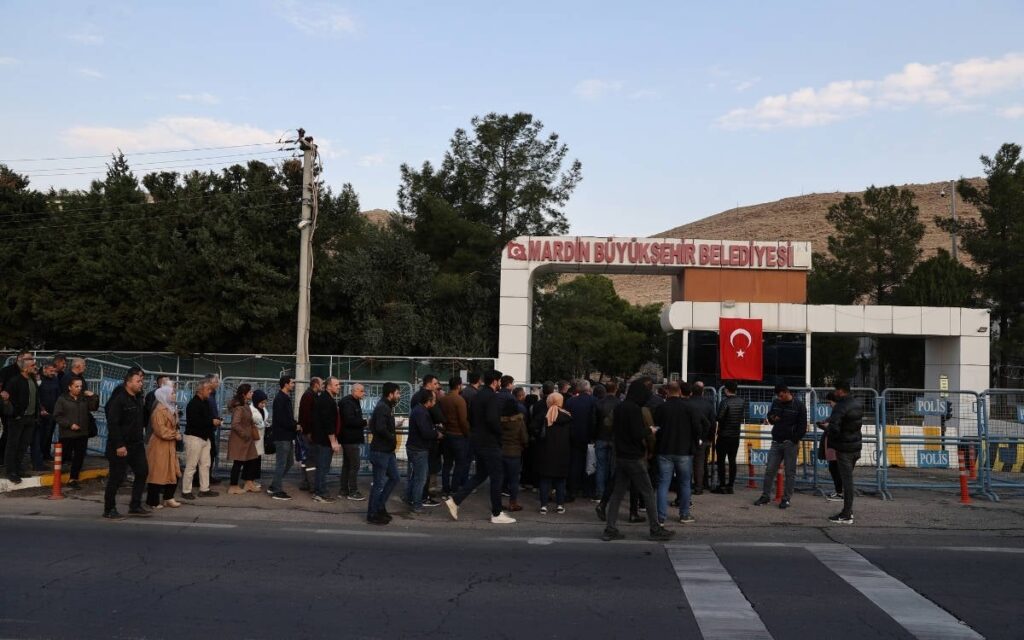An overwhelming majority of Kurdish voters disapprove of appointing trustees to opposition-held municipalities, yet believe that the government will continue the practice, according to a recent study conducted by an İstanbul-based think tank.
Spectrum House released its “Kurdish Voters’ Perceptions, Attitudes, and Expectations Regarding Trustee Appointments Report” on its website on Wednesday.
The document was issued in the wake of the recent removal of three pro-Kurdish Peoples’ Equality and Democracy Party (DEM Party)-affiliated mayors in Mardin, Batman and Halfeti, who were replaced with government-appointed trustees after terrorism-related probes. Ahmet Özer, the opposition mayor of İstanbul’s Esenyurt district and a member of the main opposition Republican People’s Party (CHP), was also removed. The CHP had recently allied with the DEM Party to secure that district.
The report, based on a survey of 1,725 people across Turkey who identified as Kurdish conducted between October 15 and 28, showed that 74.2 percent of participants viewed trustee appointments as wrong, while 66.4 percent believed the government will continue the practice.
Those who disapprove of the removal of democratically elected representatives rose to 92.9 percent among supporters of the DEM Party.
A total of 61.5 percent of participants indicated that they believed these appointments are related to the Kurdish issue, a term prevalent in Turkey’s public discourse that refers to the demand for equal rights by the country’s Kurdish population and their struggle for recognition, and disregard of the will of the Kurdish people.
Only 5.7 percent of participants were convinced by the Justice and Development Party (AKP) government’s justifications for trustee appointments, such as corruption, irregularities, security and terrorism, while 79.1 percent said they believed these appointments would complicate resolution of the Kurdish issue.
The results further showed that 35.4 percent of the participants viewed the DEM Party’s reaction to trustee appointments as “adequate,” with this figure dropping to 19.1 percent for the main opposition CHP.
When asked, “What should be done to stop trustee appointments?” 36.5 percent of participants responded that “All opposition parties should act together,” 19.9 percent stated that “The DEM Party should fight more effectively” and 13.3 percent concluded that “Early elections should be held.”
In answer to the question of why the trustee appointed to Van Metropolitan Municipality was removed, 53 percent of participants responded, “Kurdish people standing up for their will, developing protests and civil actions.”
Abdullah Zeydan, a DEM Party candidate who won a landslide victory in the March 31 local election in eastern Van province, but was initially denied the mandate to serve as mayor of the city. He only received the official ability to govern on April 2, following widespread protests across the county.
The Middle East Eye (MEE) reported earlier this week that the Turkish government is preparing to investigate 37 municipalities controlled by the DEM Party over alleged connections to terrorism.
According to a source cited by MEE, Turkish police are reviewing DEM Party-controlled municipalities to assess whether more formal investigations are warranted. If official inquiries provide official cause, all 37 mayors could be removed and replaced by state-appointed administrators.
Turkey’s recent practice of appointing state trustees, or “kayyım,” to replace elected mayors accused of terrorism ties dates back to a 2016 law enacted after the failed coup attempt. The law grants the government authority to dismiss and replace mayors and municipal council members on the basis of terrorism investigations, citing national security concerns. Following its implementation, trustees were assigned to 101 municipalities, predominantly those led by the HDP, which was then the main pro-Kurdish party, with 151 municipal council members also dismissed.
In the 2019 local elections, only six of the 65 municipalities won by the HDP were governed without trustee appointments. Major cities with significant Kurdish populations, like Diyarbakır, Van and Mardin, were placed under trustee control, largely due to allegations of terrorism support among elected mayors. Critics argue that these appointments undermine local democracy and sideline voters’ choices, with rights groups labeling the moves “anti-democratic.”

